‘No child is a zero’: How Migdal Ohr helps 10,000 at-risk children every year
Francine Wolfisz visits one of Israel's largest non-profit organisations, which has helped turn around the lives of thousands of children for nearly 50 years
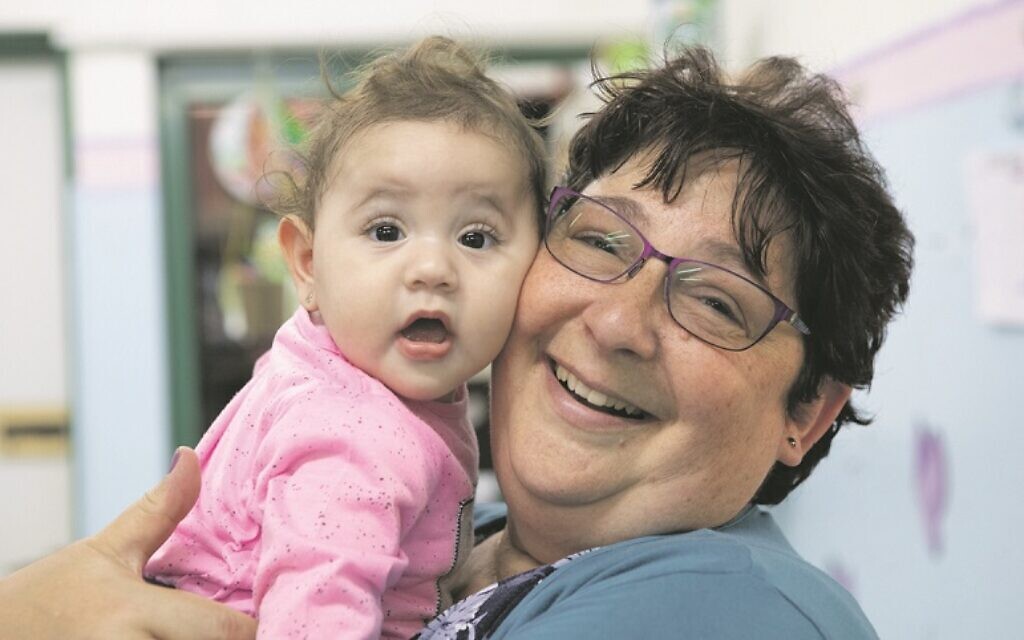 Migdal Ohr's daycare centre looks after children from as young as three-months-old Credit: Geoffrey Alan Photography
Migdal Ohr's daycare centre looks after children from as young as three-months-old Credit: Geoffrey Alan Photography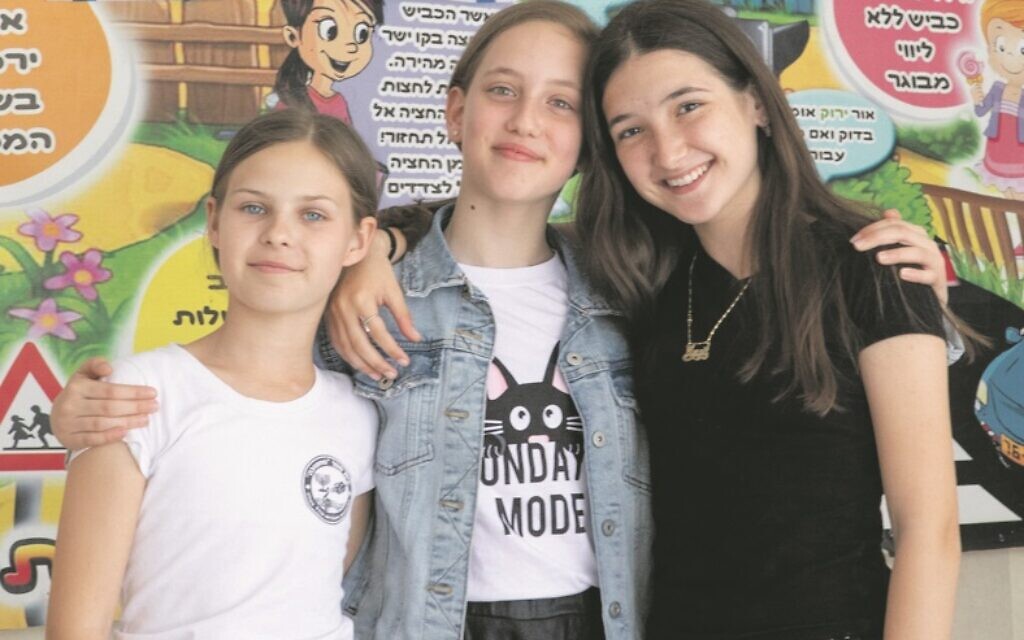 Migdal Ohr provides a home and education for 10,000 at-risk children across Israel Credit: Geoffrey Alan Photography
Migdal Ohr provides a home and education for 10,000 at-risk children across Israel Credit: Geoffrey Alan Photography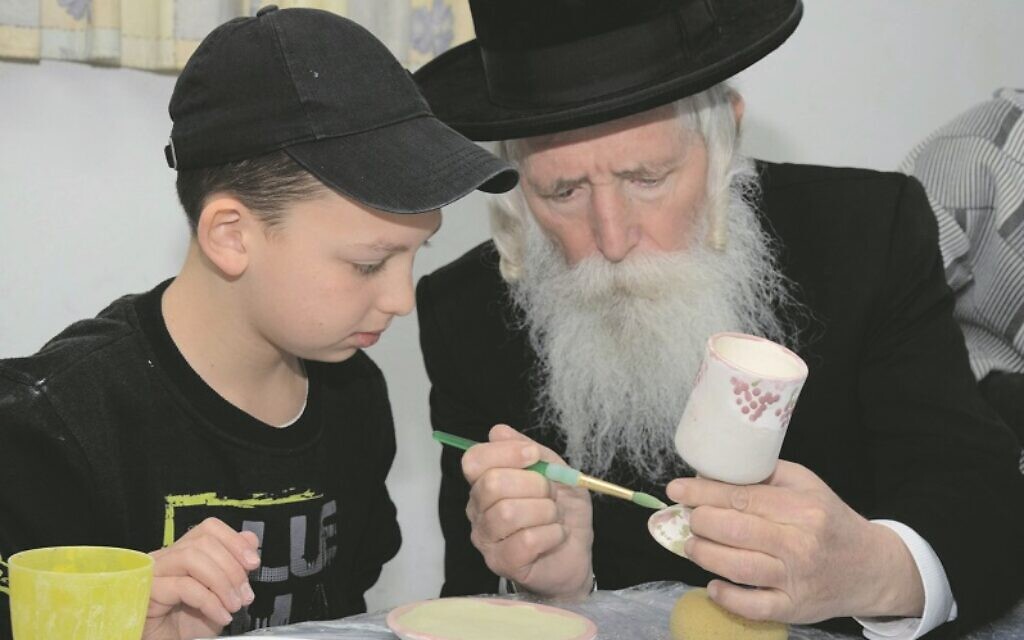 Rabbi Yitzchak Grossman, founder of Migdal Ohr, with a youngster helped by the charity Credit: Geoffrey Alan Photography
Rabbi Yitzchak Grossman, founder of Migdal Ohr, with a youngster helped by the charity Credit: Geoffrey Alan Photography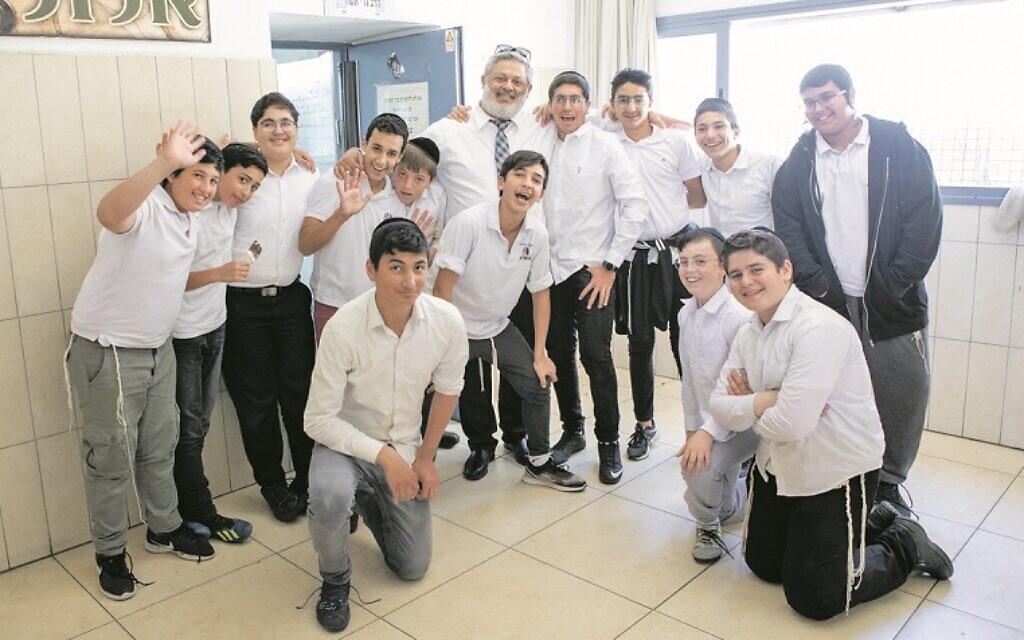 Pupils from the boys' secondary school at Migdal HaEmek Credit: Geoffrey Alan Photography
Pupils from the boys' secondary school at Migdal HaEmek Credit: Geoffrey Alan Photography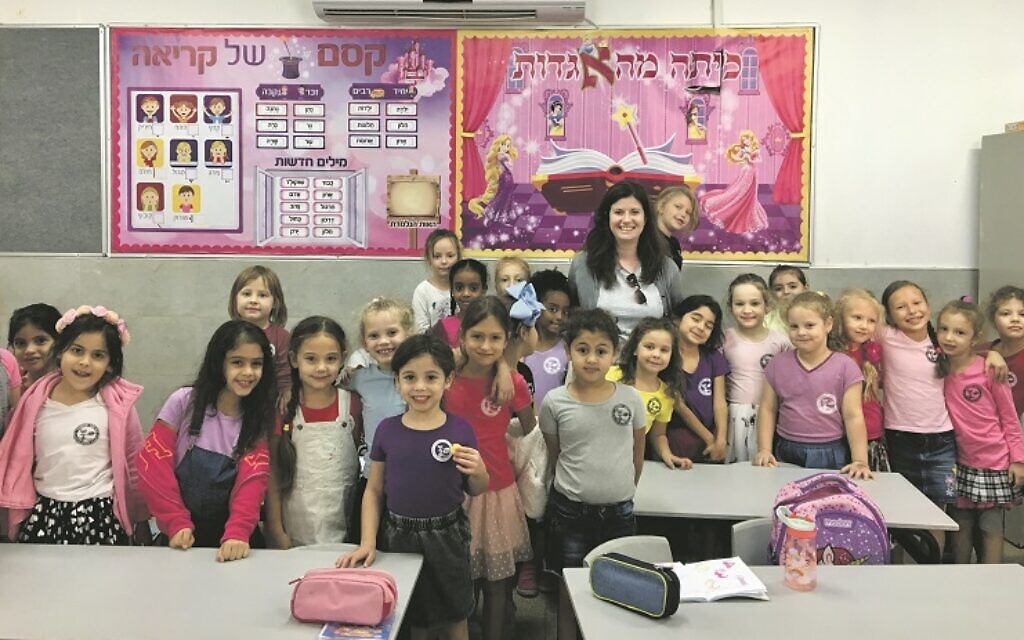 All smiles: Francine is greeted by Year One pupils at Machshava primary school. Credit: Geoffrey Alan Photography
All smiles: Francine is greeted by Year One pupils at Machshava primary school. Credit: Geoffrey Alan Photography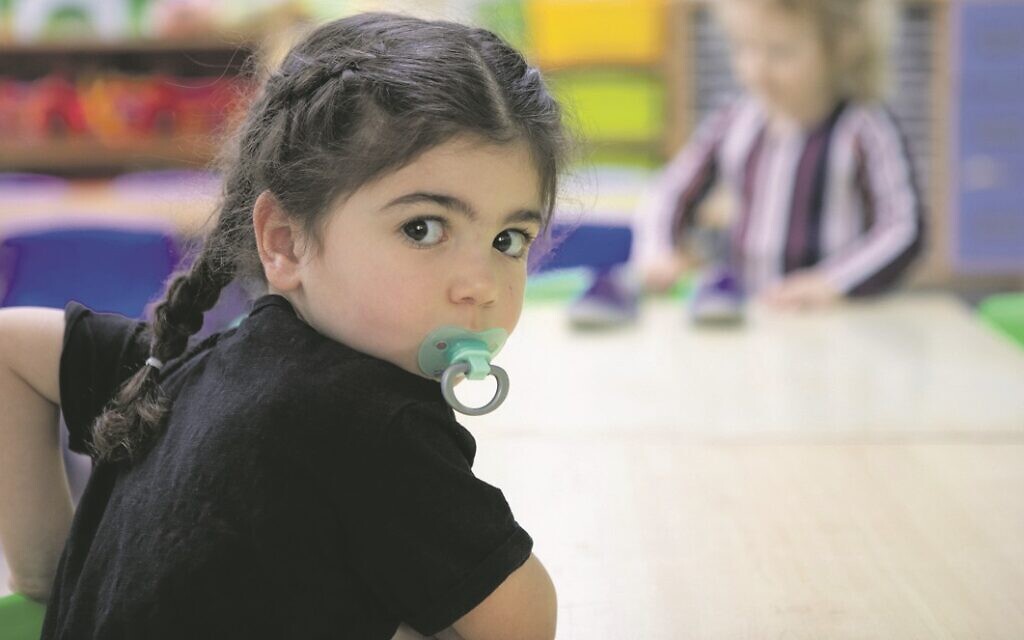 Migdal Ohr has been helping to turn around the lives of young people for nearly 50 years Credit: Geoffrey Alan Photography
Migdal Ohr has been helping to turn around the lives of young people for nearly 50 years Credit: Geoffrey Alan Photography
An hour has passed since lunch at Migdal HaEmek’s daycare centre, where 80 youngsters aged three months to three years are all miraculously asleep at the same time, tucked up in their sleeping bags. All that is, except one.
A toddler with blonde curls and brown eyes is wide awake and waves at me, taking out her dummy to smile, while one of the carers holds her and speaks in hushed tones.
The scene would be unremarkable in any other nursery, except that here the children have been orphaned or born to parents who struggle to look after them, either through poverty, physical and mental health issues or addiction.
Get The Jewish News Daily Edition by email and never miss our top stories Free Sign Up
They are just a handful of the 10,000 at-risk children helped every year by Migdal Ohr, one of Israel’s largest non-profit organisations, which provides literally everything needed for the best start in life, from food, clothes and bedding, to a safe home, education and employment.
It’s no coincidence that of the 900 staff employed by the organisation, 80 percent of them grew up within one of the charity’s programmes and are more than happy to give back as adults.
Today, Migdal Ohr runs 120 youth clubs, 15 schools and three residential campuses across the country – including the place I have come to visit – the flagship 45-acre campus of Migdal HaEmek, in southern Galilee.
Looking around, one can’t help but feel impressed by the scale of what this charity
has been able to achieve, but all the more remarkable is that it only happened because of one man’s desire to help young people, more than 50 years ago.
Back in 1967, the youth of Migdal HaEmek were in trouble. Secular and economically neglected, this southern Galilee neighbourhood was set up to accommodate thousands of Sephardi immigrants arriving from North Africa, but the population swiftly outstripped infrastructure – and soon there were not enough schools or jobs to go around.
For a young person growing up in Migdal HaEmek, it was not uncommon to find a parent who had turned to crime or drug and alcohol abuse to cope with their impoverished existence – and so they hung out on streets, or in pubs and local clubs, to escape their family situation. But, one night, an unexpected guest turned up at the local disco.
There, among the drinking and dancing, flashing lights and loud music, stood Rabbi Yitzchak Grossman, scion of a prominent Chasidic family from Mea Sharim, with his long black beard, side locks and dark suit.

“They couldn’t believe what they were seeing,” smiles a now 73-year-old Grossman. “They thought maybe someone had died and I was looking for someone. I told them I had come here to live and they said, ‘Are you crazy? You left Jerusalem to live here?’ I said yes, because you are my brothers.”
Just months before, the newly-married 21-year-old Grossman had witnessed the liberation of the Old City during the Six-Day War and the frenzy of a crowd of thousands making their way towards the Western Wall.
He pledged to dedicate his life towards helping young people in need – and there were certainly plenty of them in Migdal HaEmek.
Having earned the nickname “Disco Rabbi”, he turned up every night at the clubs and connected with the disillusioned youth around him.
He was like a magnet for them, as the crowd opened up to him about their families, including that many had a brother or father in prison, motivating the rabbi to visit them.
It was during these visits that Grossman – who aged 23 became the youngest municipal Chief Rabbi in Israel, when he was elected Chief Rabbi of Migdal HaEmek – came up with an idea for a rehabilitation programme, Shaked.
This gives inmates the chance to undertake religious study in return for a reduced sentence for good behaviour.
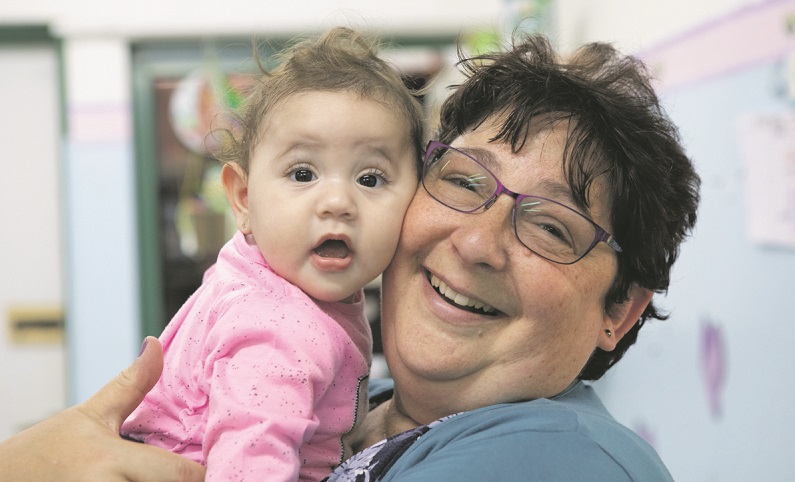
Still operating in all Israeli prisons, the programme has been credited with reducing the recidivism rate of participants to 20 percent.
During one such visit, Grossman recalls that as he left the prison, he kissed one inmate on the cheek and gave him a hug.
A few days later, he received a postcard from the prisoner, telling him that was the first time in his life anyone had shown him love.
He explains: “This taught me what the problem is. If someone will take these kids and give them love, a home, an education, a mother and father, then they can be the best kids.”
Grossman resolved to find the funds to start such a project, and in 1972 founded Migdal Ohr (meaning “Tower of Light”), providing a home for 18 boys from families in need.
By the next year, the charity had doubled in size and has continued to grow, with the Israeli government providing 60 percent of the annual budget.
The rest – which amounts to a not insignificant £8million shortfall – is sought through donations from around the world, including via the fundraising branch here, Migdal Ohr UK.
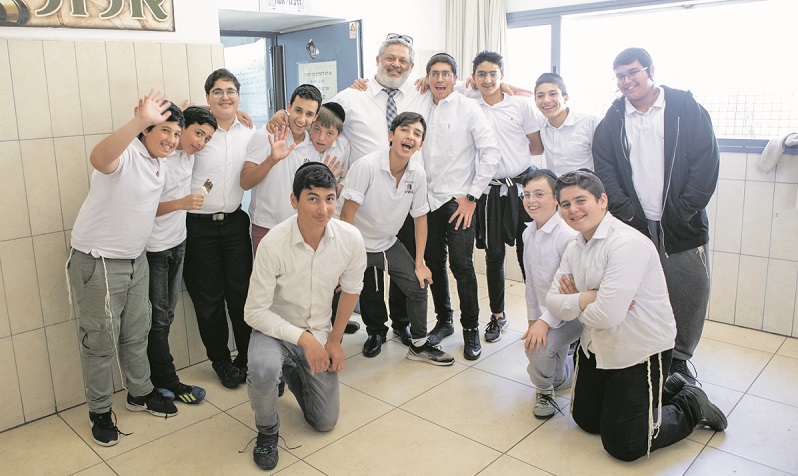
As Grossman tells me, the need for such a charity still very much exists nearly five decades after he established it.
“There are stories I can tell you again and again,” he says, shaking his head. “Once, a father threw out his children, aged 12 and 14, onto the street for the night. In the morning, they went looking for the mayor and he reached out to me.
“When we arrived at the house, the bedroom door was closed and there was a note on the table saying that the father had decided to end his life.
“I went into the bedroom and saw the man had taken maybe 100 pills. I called an
ambulance and they took him to hospital and saved his life. When I went to visit him, he told me he had lost his wife from cancer, that he was ill and that he couldn’t cope with his children.
“Of course, we took in the kids and they both went on to become successful. As for the father, we gave him a job.”
He smiles as he thinks back to how Migdal Ohr saved this one family from crisis, but they are not unique – Grossman can recall several stories where the charity has helped turn around the lives of young people.
“I received a call from a rabbi in Bnei Brak, who told me he kept seeing two children at a storage place at night.
“I sent people to find out more and they discovered their mother was mentally ill in hospital and the father had ended up in jail.
“The welfare department said they should live with their grandmother, but she had another son, who was not married, and he beat them. They decided it was enough and found this storage shed to live in. Migdal Ohr sent a car right away and we took in the kids.”
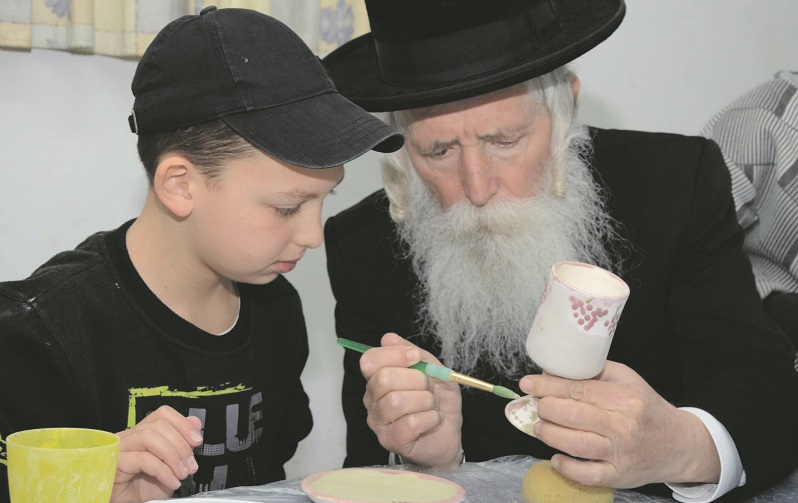
Given their unsettled family backgrounds, their impoverishment or the loss of a parent at a young age, it would be easy to imagine many of the children are unable to settle into a new life at Migdal Ohr.
But walking around the sizeable campus, I see only smiles and contentment on the faces of these youngsters.
That, says Sharon, Migdal Ohr’s project director, comes from “not just a financial, but also an emotional investment”.
She explains: “Children come here and say, ‘we’re nothing’, so they have no expectations in life. But no child is a zero – they are all good at something. Some are good at drawing, so we encourage them to draw murals on the walls. Others are good at singing, so we have a choir.
“Many don’t know how to cook, so here they can learn to become chefs, which helps them to face challenges and gives them a vocation.
“What we give them are tools for life, an understanding that they can break the cycle and turn out differently.”
We head over to the Machshava primary school, one of several educational institutes on campus, where many of the 300 pupils come from immigrant families.
On entering the Year One classroom, 27 beaming children stand up, greet me with “hello” and “good morning” and begin to sing in English.
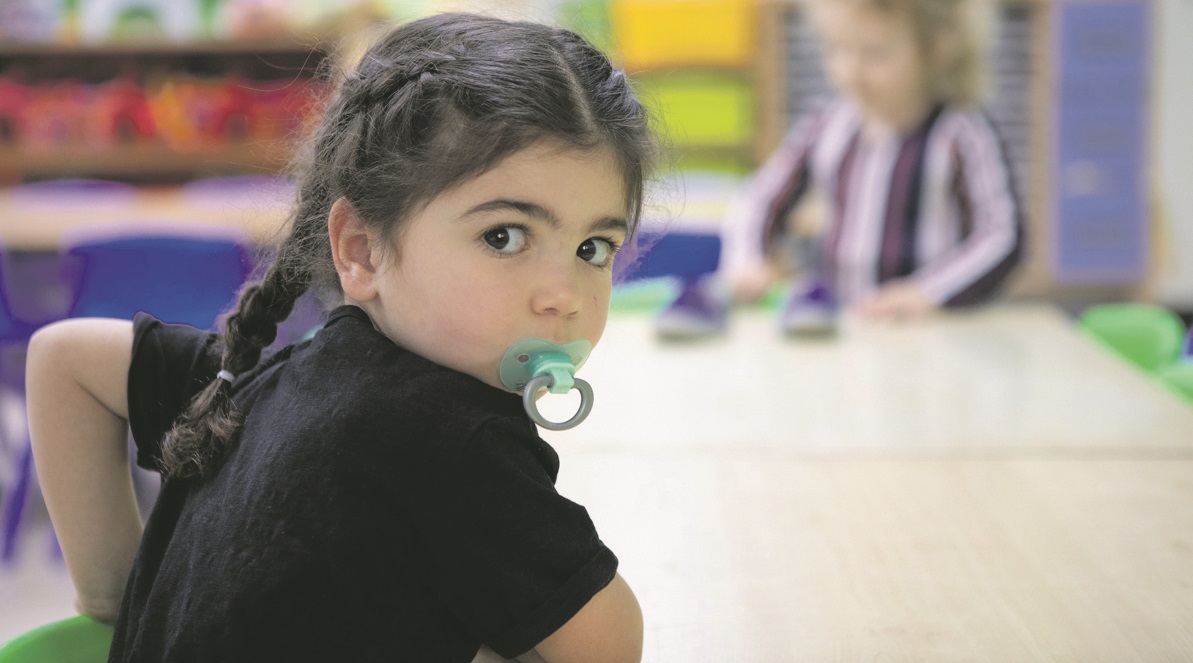
A sense of achievement sweeps the room when they finish, made all the more impressive by the fact that English is not normally taught in Israeli schools for at least another two years, but these five and six-year-olds are already well ahead.
We move on to the other side of campus to visit two huge residential blocks. One is a refurbished building, while the other recently opened and has been purpose-built from scratch at a cost of $30m (£23m) raised largely through donations.
Each block has five floors and houses 12 boys, divided between three smart, brightly-decorated bedrooms.
A communal dining area is just down the hall, attached to the kitchen where a fresh batch of babaganoush is being cooked.
But the set-up here is very different from any other ordinary dormitory. Every floor is assigned to a couple, who have their own private apartment, but are there as surrogate parents for these children.
Yaniv, a middle-aged man who came here at the age of 11 and now manages all the units, tells me the ethos here is to create a mishpachtim or “small family” for the youngsters, so they always feel loved.
“This taught me what the problem is. If someone will take these kids and give them love, a home, an education, a mother and father, then they can be the best kids.
Our last destination is certainly a feast for the eyes. We arrive at Migdal Ohr’s glittering bridal suite, which provides everything that a bride could wish for and is run by Grossman’s equally dedicated wife, Esther.
This is no ordinary gemach, but rather a boutique filled to the brim with stunning donated gowns, shoes, veils and accessories. There’s even a make-up and hair corner, so brides can look their best on their special day, while the charity also makes arrangements for the venue and the reception.
“Esther is a real angel,” one volunteer tells me. I nod in agreement while looking around the bridal heaven she has created.
As we prepare to leave Migdal Ohr, I’m left feeling impressed by what has been achieved here and how thousands of children’s lives have been turned around by the charity.
It’s a message not lost on Grossman, who received the Presidential Medal of Distinction – Israel’s highest civil award – in 2013.
“Those who want to give to others, it’s a great gift from God,” he concludes. “There are many people who are wealthy and everything is for themselves. But if you can help, you help.”
To learn more about Migdal Ohr’s projects, visit migdalohr.org.uk, email Amit Fraser, executive director of Migdal Ohr UK at amit@migdalohr.org.uk or call 07595 342491

Thank you for helping to make Jewish News the leading source of news and opinion for the UK Jewish community. Today we're asking for your invaluable help to continue putting our community first in everything we do.
For as little as £5 a month you can help sustain the vital work we do in celebrating and standing up for Jewish life in Britain.
Jewish News holds our community together and keeps us connected. Like a synagogue, it’s where people turn to feel part of something bigger. It also proudly shows the rest of Britain the vibrancy and rich culture of modern Jewish life.
You can make a quick and easy one-off or monthly contribution of £5, £10, £20 or any other sum you’re comfortable with.
100% of your donation will help us continue celebrating our community, in all its dynamic diversity...
Engaging
Being a community platform means so much more than producing a newspaper and website. One of our proudest roles is media partnering with our invaluable charities to amplify the outstanding work they do to help us all.
Celebrating
There’s no shortage of oys in the world but Jewish News takes every opportunity to celebrate the joys too, through projects like Night of Heroes, 40 Under 40 and other compelling countdowns that make the community kvell with pride.
Pioneering
In the first collaboration between media outlets from different faiths, Jewish News worked with British Muslim TV and Church Times to produce a list of young activists leading the way on interfaith understanding.
Campaigning
Royal Mail issued a stamp honouring Holocaust hero Sir Nicholas Winton after a Jewish News campaign attracted more than 100,000 backers. Jewish Newsalso produces special editions of the paper highlighting pressing issues including mental health and Holocaust remembrance.
Easy access
In an age when news is readily accessible, Jewish News provides high-quality content free online and offline, removing any financial barriers to connecting people.
Voice of our community to wider society
The Jewish News team regularly appears on TV, radio and on the pages of the national press to comment on stories about the Jewish community. Easy access to the paper on the streets of London also means Jewish News provides an invaluable window into the community for the country at large.
We hope you agree all this is worth preserving.
-
By Brigit Grant
-
By Laurent Vaughan - Senior Associate (Bishop & Sewell Solicitors)
-
By Laurent Vaughan - Senior Associate (Bishop & Sewell Solicitors)
-
By Laurent Vaughan - Senior Associate (Bishop & Sewell Solicitors)
-
By Laurent Vaughan - Senior Associate (Bishop & Sewell Solicitors)





















